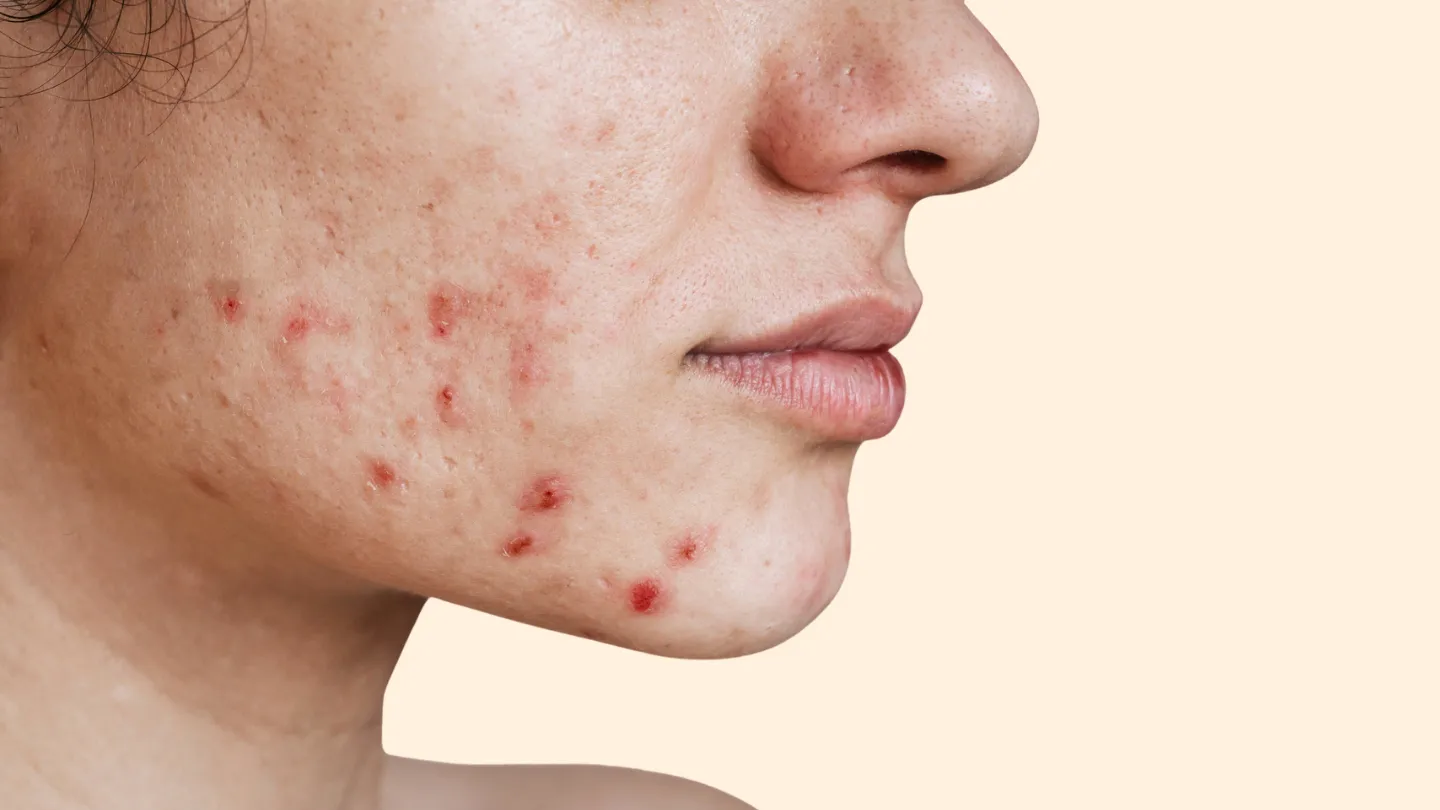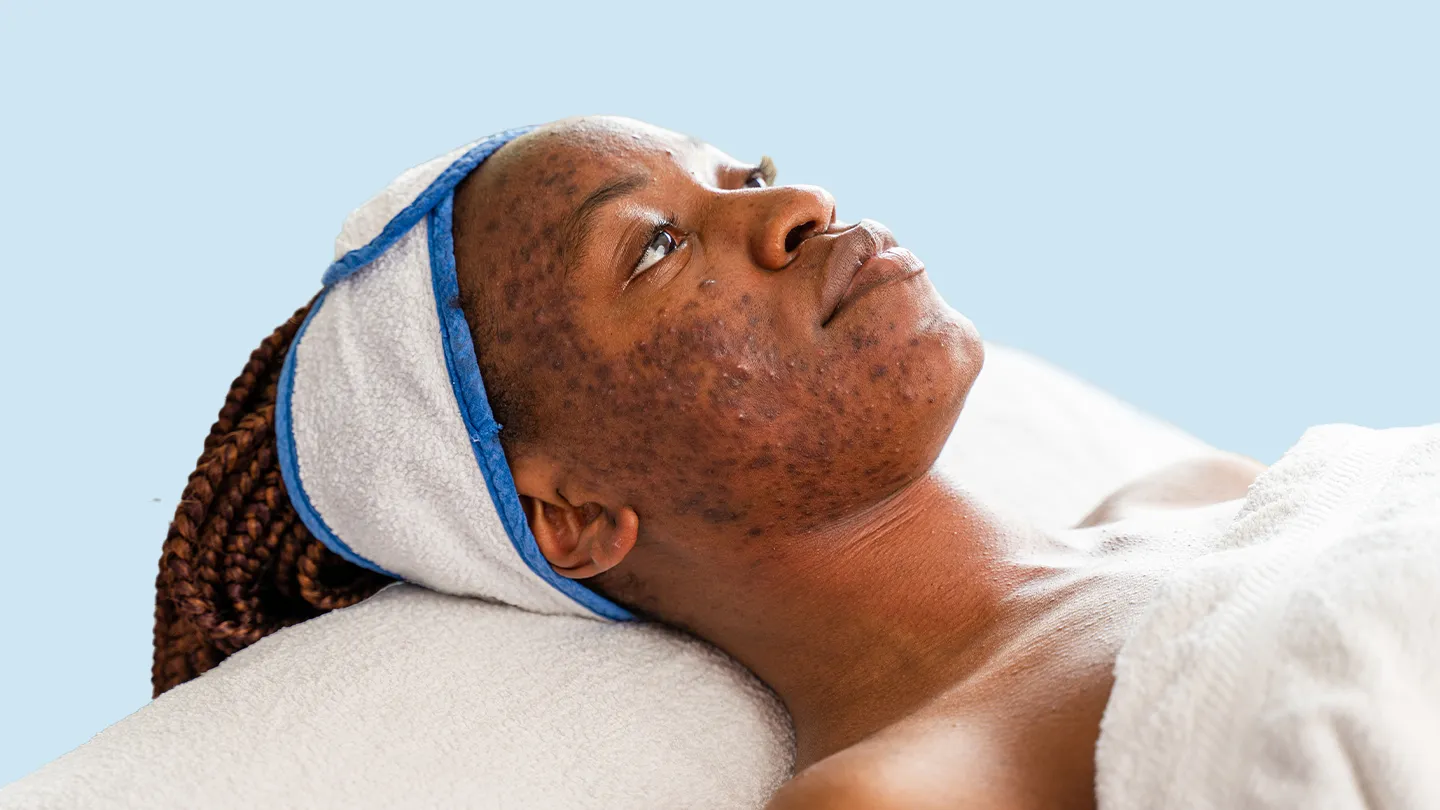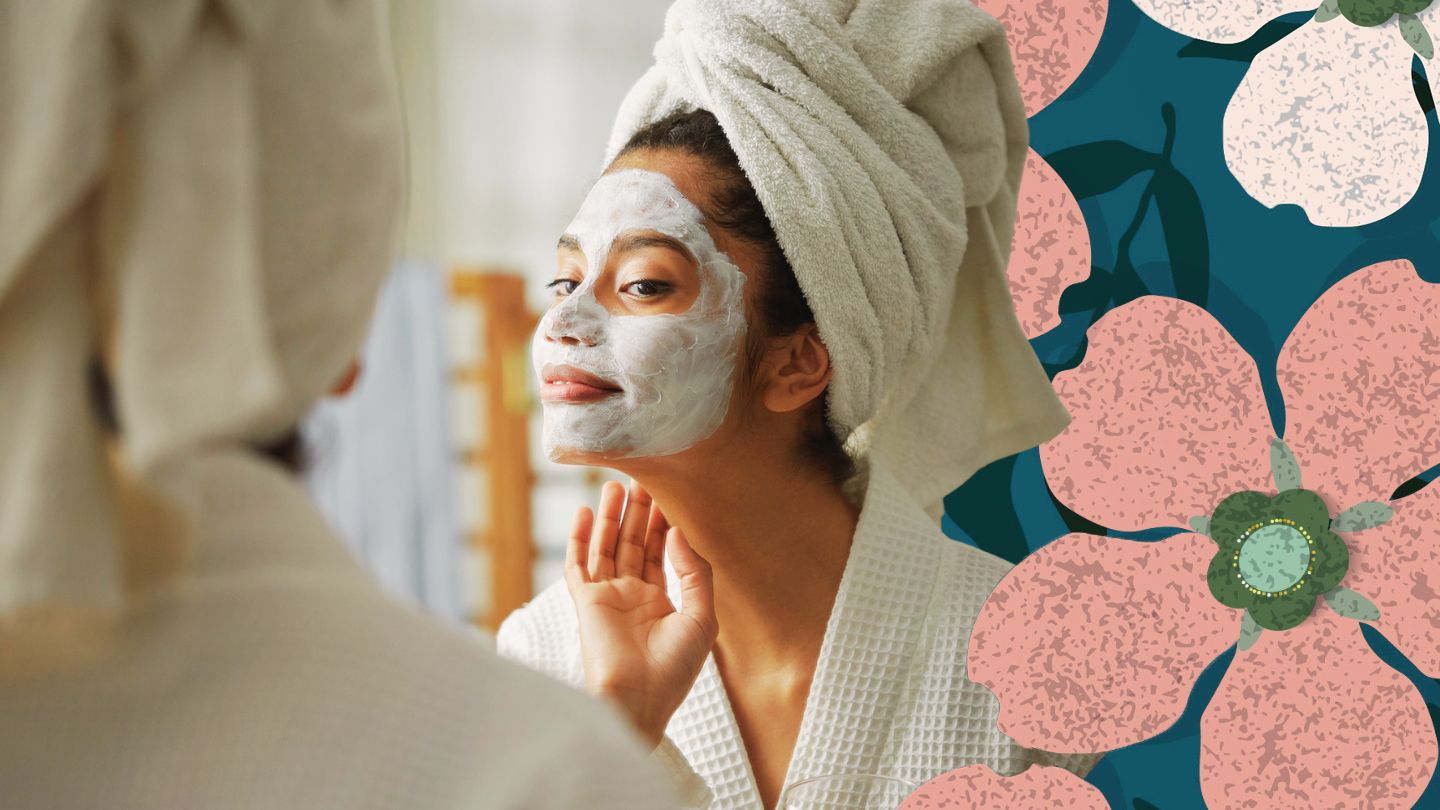Understanding Shoulder Acne
Acne is a common skin condition that can appear anywhere on the body where there are oil glands, including the shoulders. Shoulder acne, sometimes called "bacne", refers to acne that develops on the back and shoulders.
Like other types of acne, shoulder acne occurs when dead skin cells, oil and bacteria clog the pores and hair follicles on the skin. This leads to different types of acne lesions such as whiteheads, blackheads, pimples, cysts and nodules forming on the shoulders.
Shoulder acne can be mild and consist of a few sporadic pimples. However, it can also be more severe and widespread. Severe cases of shoulder acne are sometimes referred to as shoulder bacne.
Causes of Shoulder Acne
There are several factors that can contribute to acne on the shoulders:
- Hormonal changes - Fluctuations in hormones, especially androgens, during puberty, menstrual cycles and pregnancy can increase oil production and lead to shoulder acne.
- Oily skin - Excess oil production (sebum) can cause clogged pores and acne on the shoulders.
- Dead skin cell buildup - Excess dead skin cells can combine with oil and clog pores leading to shoulder acne.
- Bacteria - The bacteria Propionibacterium acnes (P. acnes) contributes to inflammation in clogged follicles.
- Pressure or friction - Tight clothing, backpacks, sports gear can cause pressure and friction leading to shoulder acne.
- Stress - Stress hormones may increase oil production and worsen acne on the back and shoulders.
- Medications - Certain medications like steroids, lithium, anticonvulsants are linked to shoulder and back acne.
- Genetics - Some people may be genetically predisposed to acne on the back and shoulders.
Types of Shoulder Acne
There are several types of acne that can develop on the shoulders, including:
- Whiteheads - These appear as small, raised bumps with a white center on the skin's surface.
- Blackheads - These look like tiny dark dots on the skin and form when a clogged pore stays open.
- Papules - Small pink or red bumps that are tender to the touch.
- Pustules - Red bumps with white or yellow pus at the tip.
- Nodules - Large, hard lumps under the skin that are painful and inflamed.
- Cysts - Large, pus-filled lumps under the skin that can cause scarring.
How to Prevent Shoulder Acne
While acne can be difficult to avoid entirely, there are some preventive measures that can be taken to reduce breakouts on the shoulders:
1. Practice Proper Hygiene
Make sure to wash your shoulders regularly with a gentle cleanser. Use warm water and avoid harsh scrubs. Also shower immediately after exercising or sweating to rinse away dirt, oil and bacteria buildup.
2. Avoid Skin Irritation
Wear loose, breathable clothing that won't rub and irritate the skin on your shoulders. Tight shirts or straps can cause friction leading to acne. Avoid carrying heavy backpacks directly on your shoulders if possible.
3. Manage Oily Skin
Use oil-free and non-comedogenic skin care products if you have oily skin. Look for ingredients like benzoyl peroxide that can gently reduce oil production. An exfoliating wash containing salicylic acid can also help prevent clogged pores and acne.
4. Treat Existing Breakouts
Use acne spot treatments containing benzoyl peroxide or salicylic acid on existing shoulder pimples to help dry them out faster. Avoid picking or popping pimples as this can worsen inflammation and lead to scarring.
5. Maintain Healthy Diet and Exercise Routine
Eat a balanced diet rich in antioxidants and omega-3 fatty acids found in fruits, vegetables and fish oil supplements. Regular exercise can help reduce stress and balance hormones. However, be sure to shower after working out.
Treatments and Remedies for Shoulder Acne
If preventive measures aren't enough, there are also many effective medicated treatments available, both over-the-counter and prescription, to get rid of shoulder acne. Common options include:
Over-the-Counter Medications
- Benzoyl Peroxide - Kills acne bacteria and reduces inflammation.
- Salicylic Acid - Unclogs pores by exfoliating dead skin cells.
- Sulfur - Dries out excess oil and improves exfoliation.
- Retinoids - Derived from vitamin A to unplug follicles.
- Tea Tree Oil - Natural antibacterial and anti-inflammatory properties.
Prescription Medications
- Topical antibiotics - Clindamycin, erythromycin fight acne bacteria.
- Oral antibiotics - Tetracyclines like doxycycline reduce inflammation.
- Topical retinoids - Tretinoin (Retin-A), adapalene (Differin) clears clogged pores.
- Hormonal treatments - Birth control pills, spironolactone blocks androgen hormones.
- Isotretinoin - Highly effective oral retinoid for severe, stubborn acne.
Light and Laser Therapy
Devices like LED light therapy and laser resurfacing can combat acne bacteria and improve skin's texture. Chemical peels may also be used to unclog pores and smooth shoulder skin.
Corticosteroid Injections
For severe cystic shoulder acne, corticosteroid injections can help reduce inflammation and nodules that haven't responded to other treatments.
Home Remedies and Lifestyle Tips for Shoulder Acne
In addition to medical treatments, there are also some simple at-home remedies and lifestyle changes that can aid in clearing up shoulder acne.
1. Apple Cider Vinegar
Apple cider vinegar contains antibacterial and anti-inflammatory compounds that can help treat shoulder acne when applied topically. Mix it with a bit of water and use a cotton pad to apply to the affected area. Rinse after 5-10 minutes.
2. Honey Mask
Manuka honey has antioxidant and antimicrobial effects. Make a paste by mixing 2 tablespoons honey with 1 teaspoon cinnamon powder. Apply it to shoulders, leave on for 15 minutes then rinse.
3. Aloe Vera Gel
Fresh aloe vera gel can help soothe inflammation and reduce acne scars. Apply pure gel extracted from an aloe leaf directly onto cleansed skin. Allow it to dry, then rinse it off.
4. Exfoliate Regularly
Use a brush with soft bristles or a sponge to gently exfoliate your shoulders. This can dislodge clogged pores and remove dead skin cells. Do this 1-2 times per week while showering.
5. Wear Loose, Breathable Fabrics
Choose loose shirts and tank tops made of cotton or linen to allow ventilation for your shoulders. Tight lycra, nylon athletic wear can exacerbate acne.
6. Clean Workout Gear
Dirty workout equipment and clothes can transfer bacteria to your skin. Use antibacterial wipes to clean shoulder straps on bags and bras. Wash athletic apparel after each use.
7. Manage Stress
Chronic stress can make acne worse due to hormone changes. Try relaxing activities like yoga, meditation and deep breathing. Get enough sleep since lack of sleep impacts stress hormones.
When to See a Dermatologist for Shoulder Acne
It's advisable to see a dermatologist or doctor if you experience:
- Severe, painful cystic acne on your shoulders that doesn't respond to over-the-counter treatments.
- Acne that causes scarring or dark spots.
- Shoulder acne along with irregular menstrual cycles or other hormonal changes.
- Signs of infection like pain, redness, swelling, fever.
A dermatologist can prescribe stronger medications like isotretinoin or hormone therapy to treat stubborn shoulder and back acne. They may also perform steroid injections or drainage for severe cysts.
Shoulder Acne Scars Treatment
If shoulder acne has left you with unsightly scars, there are treatments that can help minimize and improve their appearance. Options include:
- Over-the-counter scar gels containing silicone which helps flatten and smooth scars.
- Prescription retinoids (tretinoin, tazarotene) to help regulate collagen production.
- Professional procedures like microneedling, laser resurfacing, and injections to reduce scar tissue.
- Surgical excision for removal of large, deep scars and keloids.
Avoiding picking and popping shoulder pimples can prevent scarring. Always care for active acne lesions gently and keep the area moisturized.
When to See a Doctor
Consult a dermatologist promptly if you experience:
- Sudden severe acne or multiple painful nodules
- Acne accompanied by fever or chills, which may indicate infection
- Acne that doesn't clear up with over-the-counter treatments
- Significant acne scarring or dark spots
- Emotional/psychological distress due to acne
A doctor can rule out underlying causes for the acne, provide prescription medications, or refer you to a dermatologist for advanced acne treatments and scar removal procedures.
Conclusion
Shoulder acne is a common complaint that can be caused by a number of factors like hormones, genetics, friction and blocked pores. Preventing acne comes down to keeping the skin clean and avoiding irritation from clothing. Over-the-counter remedies, prescription medications, and procedures provided by dermatologists can help clear up shoulder acne.
With a diligent skin care routine using proven anti-acne ingredients, and avoiding triggers, it's often possible to minimize or resolve breakouts. However, don't hesitate to see a doctor or dermatologist if your shoulder acne is severe, painful or resisting treatment at home.
FAQs
What causes shoulder acne?
Common causes of shoulder acne include hormonal fluctuations, oily skin, clogged pores, bacteria, friction from clothing and bags, genetics, certain medications, and stress.
How can I prevent shoulder acne from forming?
Wash regularly with a gentle cleanser, wear loose-fitting breathable fabrics, shower after exercise, use oil-free non-comedogenic products, avoid picking at skin, and manage stress.
What are the best OTC medications for shoulder acne?
Effective over-the-counter treatments include products containing benzoyl peroxide, salicylic acid, sulfur, retinoids or tea tree oil. Apply acne medications directly to affected areas.
When should I see a dermatologist for shoulder acne?
See a dermatologist for severe cystic acne not responding to OTC remedies, acne with scarring, or if it coincides with hormonal changes. They can prescribe stronger medications or treatments.
How can I get rid of acne scars on my shoulders?
Using OTC scar gels with silicone, getting professional microneedling or laser resurfacing procedures, prescription retinoids, corticosteroid injections, and surgical excision can minimize shoulder acne scars.
Disclaimer: This article is for informational purposes only and does not constitute medical advice. Always consult with a healthcare professional before starting any new treatment regimen.
Related Coverage
Find effective ways to heal blood-filled pimples, including home remedies, OTC treatments, and preventative measures for clear skin....
Piedmont Dermatology & Plastic Surgery provides exceptional medical dermatology, cosmetic dermatology, plastic surgery, and aesthetic services to patients in North Carolina....
Does fasting help with acne? Discover the science behind the relationship between fasting and acne, potential benefits, drawbacks, and best practices for incorporating fasting into your skin care routine....
Learn how to accurately and sensitively depict the physical, emotional, and psychological symptoms of depression in writing to increase awareness and understanding....
Wondering which body wash will help tackle your body acne and acne on your back, chest and shoulders? We review the best acne body washes plus extra treatments....
Shop oil-free, non-comedogenic moisturizers free of toxic chemicals ideal for teen skin. Set healthy routines to manage acne breakouts and nourish delicate complexions....
Tazorac for acne is a prescription retinoid that clears breakouts and helps prevent ones. Get usage tips and know side effects....
The surface of healthy natural nails should be smooth, evenly shaped, and uniform in thickness and color. Look for a clear surface with a pale lunula and pink nail bed....
Inner thigh acne can be cleared up with the right skincare ingredients like salicylic acid and benzoyl peroxide. Learn expert tips to prevent thigh pimples and bumps....
From folliculitis to dermatitis, several culprits can cause those annoying bumps on your butt. Learn what butt acne looks like and how to safely treat it....








